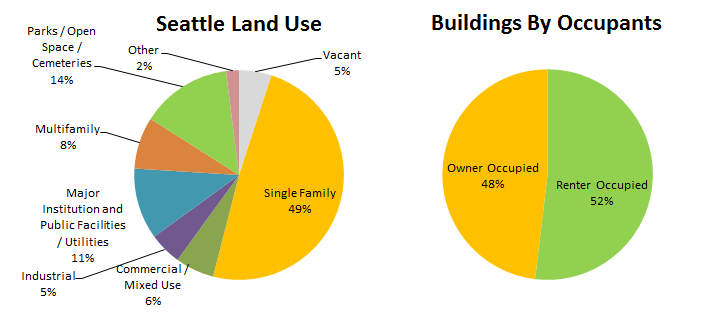
It has become a common refrain among anyone paying attention to housing costs that the market simply doesn’t work. Many legitimate and important concerns motivate this observation, including rising costs, homelessness, displacement and inequity. Often though, the conversation about housing turns to complaints about the failures of the unfettered free market. It seems that many people see the failures of the housing market as an indictment of free market capitalism. I’m not writing to push for deregulation but it’s inaccurate to use the housing market as an example of unfettered, free market capitalism.
In most cities, the housing market is highly regulated. Regulations include zoning for density, caps on total housing, complicated taxes, safety regulations, parking requirements, controls on rent and much more. Some of these regulations are important and some are questionable. When we equate the failures of the housing market to the failures of capitalism we mislead ourselves, preventing a constructive conversation about the actual regulations. If we are serious about solving most of our housing problems, I encourage us to stop speaking with rhetoric. Rather than dismissing the housing market, let’s examine and formulate a more useful assertion than ‘the market doesn’t work.’ To move beyond the misleading comments, it’s necessary to point out nearly everyone agrees with these two points:
- Some regulation is required and good. The government should require buildings to survive earthquakes and prevent fires. In other words, there will always be government intervention in the housing market.
- If the market is not producing the outcome we want, it’s not the existence of the market that’s the problem, it’s our poor design. We can’t remove markets anymore than we can make them completely ‘free.’ Even if all housing in the city were paid for by the government, there would still be a housing market; it would just be designed differently from what we have now. In other words, we can’t blame the market as if it were an interest group to be attacked.
Now that we agree we can’t have a completely free market anymore than we can banish the market, let’s talk about specific regulations. In Seattle, we do a lot of good things for housing but not enough. We also have a lot of really bad regulations. For example, our market is designed to:
- prioritize aesthetic characteristics over supply
- require minimum parking
- limit density
This design prevents people from living in the neighborhoods they wish, decreases mobility, puts power in the hands of landlords and increases costs. We should get our priorities straight and address the specific regulations that are hurting us. Let’s design a market that works.

Owen Pickford
Owen is a solutions engineer for a software company. He has an amateur interest in urban policy, focusing on housing. His primary mode is a bicycle but isn't ashamed of riding down the hill and taking the bus back up. Feel free to tweet at him: @pickovven.



